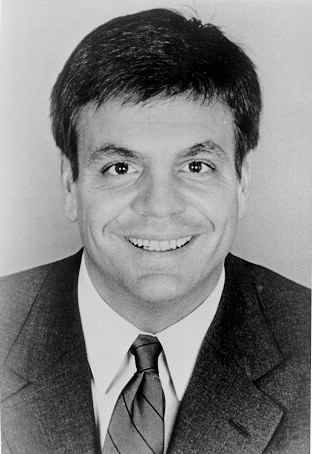A funeral this week was yet another reminder that time moves on. I used to go to weddings. Now I am entering the funeral age.
It actually was an unnecessary third reminder.
The first was the death in March of David Broder,the Pulitzer Prize winning, Dean of Washington political writers. I knew him when I worked at The Washington Post, although we were not close friends. Every workplace has a pecking order and Broder sat on Mount Olympus. I was on a ledge much farther down.
Despite that, Broder stopped by my desk shortly after I was hired and spent several minutes talking to me about Oklahoma p0litics. He had heard that the Post had hired me away from the now closed Tulsa Tribune. I was the newspaper’s lone Washington correspondent and had covered the state’s two senators and five representatives for three years. I was shocked that someone as famous as Broder would take time to  introduce himself and even more stunned by how much he knew about Oklahoma politics. Not only was he familiar with the state’s congressional leaders, he also asked me about several county commissioners. I later learned that Broder was that well-versed about every state. Like most other young staffers, I thought he walked on water. But he was never arrogant and that was not something that could be said about several of his other Mount Olympus colleagues.
introduce himself and even more stunned by how much he knew about Oklahoma politics. Not only was he familiar with the state’s congressional leaders, he also asked me about several county commissioners. I later learned that Broder was that well-versed about every state. Like most other young staffers, I thought he walked on water. But he was never arrogant and that was not something that could be said about several of his other Mount Olympus colleagues.
The second death that caused me to feel nostalgic was the passing of Geraldine Ferraro, the first female candidate from a major political party to run on a presidential ticket. I had met Gerraro through an Oklahoma congressman named Mike Synar who was the only politician whom I ever covered who I considered to be a personal friend.
First, a bit about my pal Mike.
When I arrived in Washington in 1978 as the Tribune’s correspondent, one of the congressmen I covered was Theodore Risenhoover who represented the state’s 2nd congressional district. Risenhoover had gotten elected in 1975 and we got off to a rocky start. I guess that is putting it nicely. I thought he was a lousy congressman.
Back then, I wrote a weekly political column for the Tribune and I often pointed out what I felt were flaws in Risenhoover’s performance. I wrote an article once about how he always flew first class on airplanes at taxpayers’ expense whenever he went home. That was a big deal in conservative Oklahoma. Risenhoover went on Oklahoma television stations and denied that he flew first class. He was lying and I produced evidence that showed that. Well, let’s just say I wasn’t one of his favorites after that.
If you look up Risenhoover on the Internet, you will read about his “heart shaped” water bed and how it played a role in him eventually being voted out of office. The Internet credits The Washington Post, but if I remember correctly, the article actually appeared in the Washington Star’s gossip column which was called “The Ear.” The reason why I remember was because of the furor that the gossip column caused among my Oklahoma colleagues.
The newspaper reported that Risenhoover had held a political fundraiser inside his Capitol Hill townhouse and guests had been shocked to find a gaudy bedroom on each floor. One had mirrors on the ceiling, another had nude pictures of black women displayed on the walls, and the third had a heart shaped water bed and, I think, a disco ball. 
Risenhoover considered himself to be a Don Juan.
On the morning the article was published, I got a call from the Washington correspondent for The Daily Oklahoman, the state’s largest newspaper. He also called my competitor at The Tulsa World, the morning newspaper. He suggested that we meet for coffee in the House of Representatives’ restaurant. When the three of us got together, he announced that he was not going to write a story about the heart shaped water bed because it was unverified gossip. (Remember this was before the Internet. Folks in Oklahoma had to depend on the three us for news about their elected leaders.) The Tulsa World correspondent was ambivalent, but I was not. I was going to write a story about it. In my opinion, it was news. Of course, I would first get Risenhoover’s side.
We were in the midst of a argument when Risenhoover marched into the House restaurant and hurried up to our table. Still clutching the article in his hand, he announced that he planned to hold a press conference with the three of us to deny what had been printed.
Of course, as soon as he made his denial, it legitimized the earlier story. I wrote about the beds. I also asked him to prove that he was telling me the truth by letting me see the bedrooms in his townhouse. He promised that he would, but never did.
When Mike Synar decided to run, his campaign reprinted copies of the heart shaped water bed stories. Those stories were later credited with contributing to Risenhoover’s defeat.
I couldn’t have been happier. And not just because Risenhoover had been defeated. Mike Synar turned out to be an inspirational congressman.
In his sixteen years in Congress, he refused to bend to lobbyists, even oil companies and the mighty NRA, which still are powerful forces in Oklahoma.
He was such a standout that he was given a John F. Kennedy Profile in Courage Award for “his unwavering commitment to serve the public interest, no matter how powerful the foe or great the political risk.”
In the end, the special interests got him. They went after him with a vengeance and deep pockets and he was defeated. But not before he had used his position to make a number of important votes and contributions for us all.
Mike also was a lot of fun, which is why Geraldine Ferraro’s recent death caused me to think of him.
In 1979, Synar and Ferraro pulled-off an incredibly smart publicity stunt. The biggest town in Synar’s district was Muskogee and Merle Haggard had a hit song called “Okie from Muskogee”. Here are the first few lyrics:
We don’t smoke marijuana in Muskogee;
We don’t take our trips on LSD
We don’t burn our draft cards down on Main Street;
We like livin’ right, and bein’ free.
Ferraro, meanwhile, came from Queens, which was where the fictional Archie Bunker from All in the Family lived.
So Synar and Ferraro announced that the Okie from Muskogee was going to spend a week in Archie Bunker’s neighborhood and Ferraro was going to spend a week in Muskogee. That way they could find see for themselves the many differences between rural and ubran America.
I tagged along, writing daily stories about how Synar had walked through Queens in his cowboy boots and Ferraro had met with Native Americans in Muskogee.
It was one of many moments during my journalistic career that I remember fondly, in part, because Synar and Ferraro had a good relationship. They liked each other and both wanted to show off their districts.
Mike’s life was cut short by brain cancer at age 45.
I often think about my friend, especially at times such as these when Washington is awash in political histrionics and bitter partisan fights that come close to shutting down the government.
Maybe it is because I was younger back in those days, but Washington politics seemed a lot more fun.




We were just talking about Mike Synar this weekend and how much we wished he was still around. I would love to see him in action today!